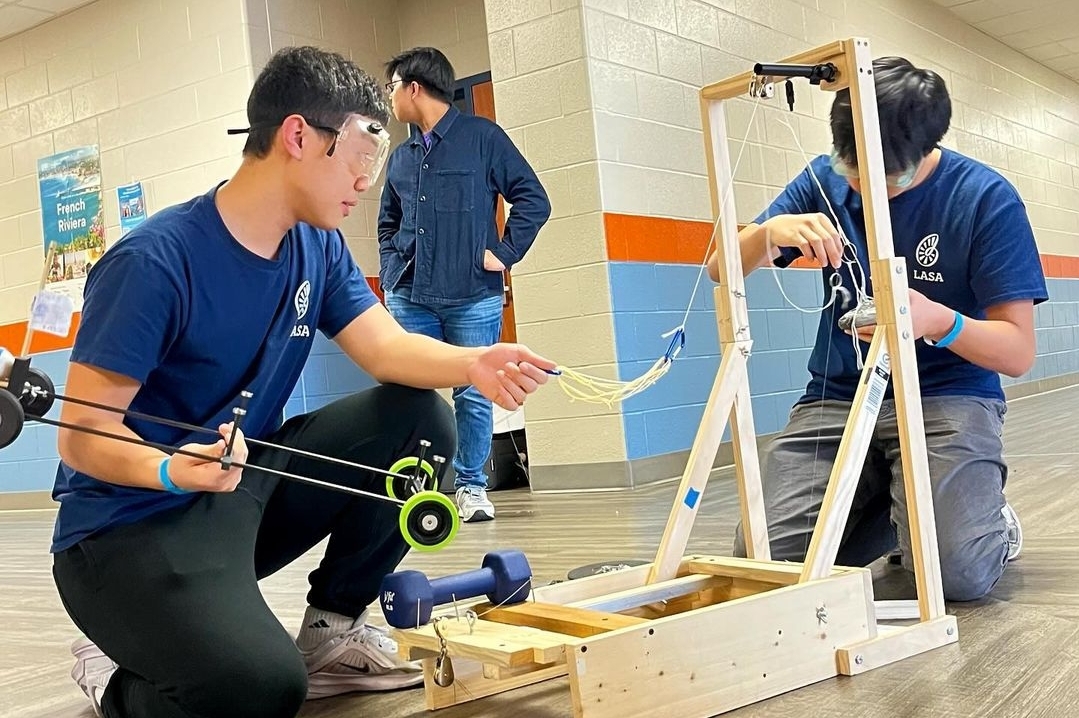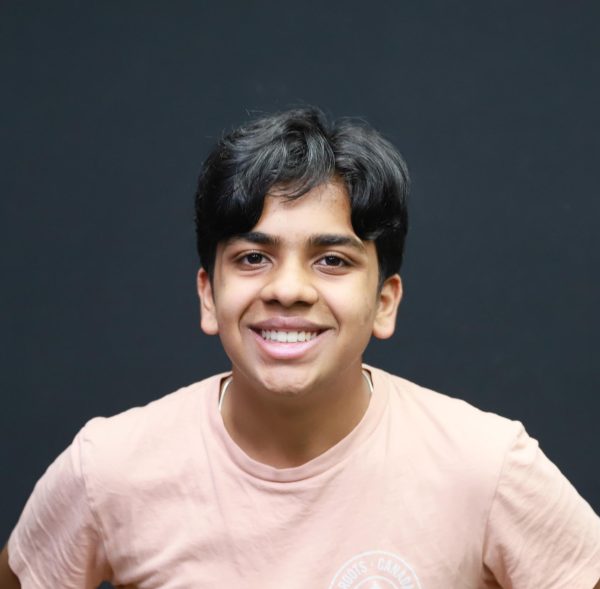In recent times, tech, computer science, and engineering seem to be dominating the world of STEM; however, interest in scientific research is still very much alive. The Science Olympiad is one of the most prominent competitions for those interested in science-related fields. Involving various competitions, tests, and projects, it is a means by which students may pursue the sciences in detail.
“In Science Olympiad, we study and put in the hard work, whether it be for a study event like astronomy or a build event like tower,” junior Krishna Dhiman said. “We also bond with other like-minded people who share the same interests as us.”
Entering a rigorous activity such as the Science Olympiad requires a world of effort as well as commitment from prospective members.
“Firstly, students have to try out for a rigorous test to have a chance at making the team; students can choose to study or not for this test,” Dhiman said. “Then once in the team, there are test-offs in which students within the same events commit to learning and then take a test to show their knowledge, since there are only so many spots for certain events. Students can research, study from books, ask mentors for help and do much more to prepare for these tests.“
The events that students can participate in are varied in their structure; according to junior captain Vishal Surya, there are 23 events ranging from “study events” like Anatomy and Physiology and Optics, to “lab events” like Chemistry lab and “build events” such as the flight event in which the team has to “create a rubber-powered balsa plane and maximize the amount of time it flies in a gym.” As such, there’s something for everyone, and all members have the opportunity to pursue their niche interests within science and technology.
”I compete in Anatomy and Physiology, Microbe Mission, and Codebusters; I mostly compete in biology-related events because biology is ultimately what interests me and is the reason I joined SciOly,” Surya said. “Codebusters is not a computer science event, but it’s a cryptography event where you encode and decode certain phrases with certain ciphers, and the goal is to decrypt or encrypt the most ciphers in the 50-minute time limit. While it isn’t biology-related, the event doesn’t require much studying since it’s all practice, and it really gets my brain to work and do critical thinking in a fun way.”
Once students decide what their events are, they participate in competitions against other schools in their events after rigorous preparation.
“Initially, students have to test against other students who are doing the same event for a chance at the team for any specific tournament,” Dhiman said. “Then once we get selected, we go to the designated tournament place whether that be our own home–for online tests–or the school or a different city we might have to go to. There we compete against other schools in rigorous tests and hopefully outperform other schools’ builds”
In addition to the competitions, club officers such as Surya have various responsibilities including bureaucratic work as well as supporting members’ morale.
“As one of the two junior captains, and five captains overall, I help lead the team by coordinating our tryout processes, our mini-tournaments or ‘test offs’ throughout the year for team selections, and I help find which tournaments we should go to,” Surya said. “Additionally, I exchange resources with other schools, including some of our biggest competitors, so that we can both mutually help our team grow. In addition, I try at least to be a helpful or joyful person at tournaments and let the team know when they can relax and also when they should be locked in.”
Science Olympiad allows students interested in science to have opportunities to hone their scientific interests in a supportive and engaging environment.
“Science Olympiad is a very interesting extracurricular to be in for me personally as it provides a haven to express one’s own passions and interests in STEM with a very supportive and diverse community,” junior Yojith Maddala said.
Ultimately, it’s also a great way for students to connect with other students who share their interests and ultimately feel like they have company in their passion for science, even when these students may be from far away.
“The best thing about it is that I get to foster a community of like-minded peers and spend time with them at tournaments while also learning more about science,” Surya said. “There’s a really big community of people across the nation, so I was able to make friends and connections with people from California, New Jersey, New York that are from competing teams. It kind of removes the stiff competition aspect of SciOly, because even if you’re trying to compete against them, you can become really good friends with them too.”



